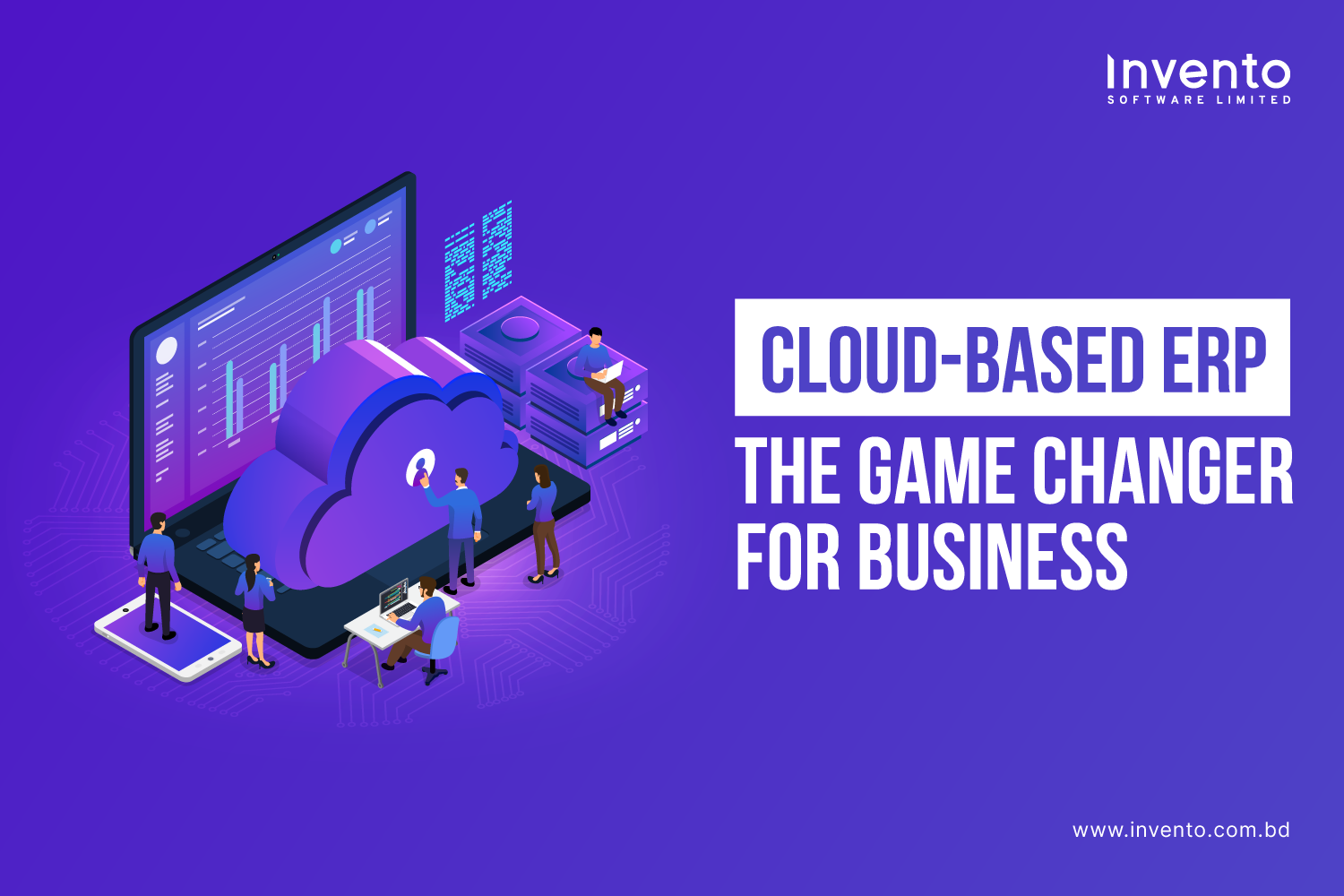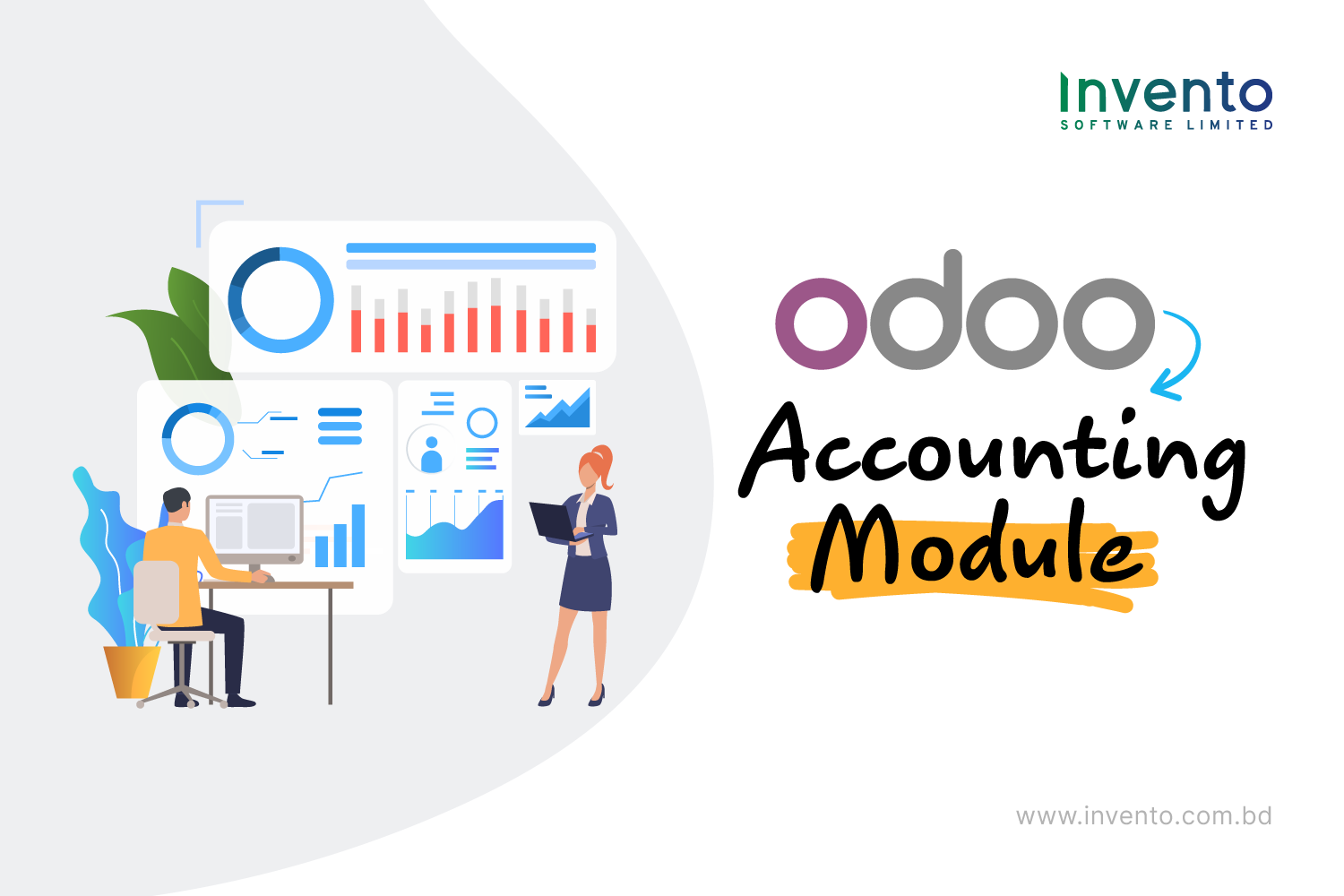A few years ago, a small trading company was struggling to manage its growth. The owner, Aiden, started with a notebook and Excel sheets. As his business expanded, so did the challenges: managing inventory, tracking sales, keeping accounts updated, and ensuring smooth communication among his staff. Mistakes became frequent like wrong deliveries, delayed payments, and confused employees. Aiden realized that if he wanted his business to grow further, he needed more than just spreadsheets. He needed a system that could connect all his business processes in one place, accessible from anywhere. Then he discovered cloud-based ERP (Enterprise Resource Planning) solutions. Within a few months, his company transformed. Its efficiency increased, errors reduced, and profits improved.
This is not only Aiden’s story. It’s the story of countless small businesses worldwide that are turning to cloud-based ERP systems to compete with larger enterprises.
What is a Cloud-Based ERP?
ERP stands for Enterprise Resource Planning. It’s a software that integrates key business functions—such as finance, sales, HR, supply chain, and customer management—into a single system.
A cloud-based ERP means this software is hosted online (on the cloud) rather than on local servers. This offers flexibility, accessibility, and scalability, especially for small businesses that cannot afford heavy IT infrastructure.
With cloud-based ERP, all you need is an internet connection. Your team can log in from the office, home, or even on the go. Updates are automatic, and data security is handled by the cloud provider.
Why Small Businesses Need Cloud-Based ERP
Many small business owners often think that ERP systems are only meant for large corporations with complex operations. That’s a common myth. The truth is, cloud-based ERP solutions are especially designed to support small and growing businesses by giving them the tools they need to run smoothly without heavy costs.
Here’s why cloud ERP is a game-changer for small businesses:
- Reduces Costs: Small businesses usually don’t have the budget for expensive servers, IT teams, or complex setups. A cloud-based ERP works on a subscription model, so you only pay for what you need. No huge upfront investment—just affordable monthly or yearly fees.
- Improves Efficiency: Manual data entry, separate spreadsheets, and juggling multiple apps often lead to errors and wasted time. Cloud ERP automates repetitive tasks—like invoicing, stock updates, and payroll—so your team can focus on growing the business instead of fixing mistakes.
- Enables Real-Time Access: Whether you’re at the office, working from home, or traveling, you can access your business data securely from any device. Owners and employees can track sales, check inventory, or approve expenses in real time, which makes decision-making faster and smarter.
- Enhances Collaboration: In many small companies, departments often work in silos, which causes communication gaps. A cloud ERP brings everything together—sales, finance, HR, inventory—on one platform. Everyone works with the same updated information, reducing confusion and improving teamwork.
- Supports Growth: As your business grows, your ERP can grow with you. You can start with essential modules (like accounting and sales) and later add more features (like HR, CRM, or manufacturing). Cloud ERP is flexible and easily scalable, so you won’t outgrow the system.
Key Features of Cloud-Based ERP for Small Businesses
When small businesses adopt ERP, they experience faster operations, fewer errors, and better decision-making. Below are the key features that make cloud ERP so powerful:
- Inventory and Stock Management: Stay updated on stock levels in real-time, reduce wastage, and avoid over-purchasing with accurate tracking. This ensures products are always available when customers need them.
- Sales and CRM: Manage customer data, track sales pipelines, and schedule follow-ups from one dashboard. This helps improve customer relationships and increases sales opportunities.
- Accounting and Finance: Automate invoicing, monitor expenses, and generate precise financial reports. Small businesses can save time and maintain better control over cash flow.
- Human Resource Management: Keep employee records, manage attendance, and run payroll smoothly. Cloud ERP also simplifies recruitment and performance tracking, saving HR teams valuable time.
- Manufacturing and Supply Chain: For small manufacturers, ERP makes production planning easier by managing raw materials, suppliers, and delivery schedules. This helps reduce delays and improve efficiency.
- Business Intelligence (BI) and Reporting: Use real-time dashboards to monitor performance and analyze data. These insights support smarter decision-making and long-term business growth.
Odoo: A Flexible ERP Solution
At Invento Software Limited, one of the most widely implemented ERP systems we offer is Odoo. Known globally for its flexibility and modular design, Odoo is a powerful tool for small businesses that want to scale step by step. Instead of overwhelming business owners with all features at once, Odoo allows companies to start small and expand gradually by adding modules as the business grows.
Why Choose Odoo for Small Business?
- Modular Approach – Odoo works like building blocks. You can begin with essential apps such as sales, CRM, inventory, or accounting. Later, when your business expands, you can easily add modules like HR, manufacturing, e-commerce, or marketing—without disrupting existing operations.
- User-Friendly – Odoo has an intuitive, modern interface that feels similar to other business tools, which means your employees won’t struggle to adapt. The learning curve is gentle, and training can be completed quickly, saving time and reducing resistance to new software.
- Cost-Effective – Unlike many ERPs designed for large corporations, Odoo offers affordable pricing plans that fit small and medium businesses. You only pay for the modules you use, making it a budget-friendly option without compromising on performance.
- Integration Capabilities – Odoo integrates seamlessly with popular third-party applications such as payment gateways, e-commerce platforms, and communication tools. This ensures all your business processes are connected, giving you a unified system to work with.
Whether you run a retail shop, service agency, or manufacturing unit, Odoo adapts to your business size and needs. It offers the right balance of simplicity and advanced features, ensuring you grow confidently without unnecessary complexity.
ERPNext: Simple, Open-Source ERP for Growing Companies
Another powerful solution we provide at Invento Software Limited is ERPNext, an open-source ERP built with small and medium businesses in mind. ERPNext is designed to offer end-to-end business management tools while keeping costs low, thanks to its open-source model.
Why ERPNext is Ideal for Small Business Owners?
- Open-Source Advantage – Unlike proprietary ERP systems that come with heavy licensing fees, ERPNext is open-source. This means small businesses can save significantly on software costs and invest more into growth areas like marketing and customer service.
- Comprehensive Features – ERPNext covers every core area of business: accounting, HR, CRM, project management, supply chain, and even manufacturing. It offers all-in-one functionality so small businesses don’t need to rely on multiple tools or scattered software.
- Customizable to Fit Workflows – Every business is unique, and ERPNext reflects that. It can be tailored to match your company’s specific processes, ensuring you’re not forced into rigid workflows. This flexibility is especially valuable for startups and growing businesses.
- Strong Community Support – ERPNext is backed by a global community of developers, users, and contributors. This ensures constant updates, improvements, and troubleshooting support without depending on a single vendor.
For small businesses that want transparency, scalability, and full control over their ERP system, ERPNext is a fantastic option. It empowers owners with the tools they need today while leaving room for future innovation.
How to Implement Cloud-Based ERP in Your Small Business
Implementing ERP may sound complex, but with the right steps, it becomes a smooth process. Here’s how small businesses can get started:
Identify Your Needs
First, outline which areas of your business need improvement—such as accounting, inventory, sales, or HR. Clear goals help you choose the right modules and avoid unnecessary costs.
Choose the Right ERP
Every business is unique. Decide whether Odoo or ERPNext fits your needs best—or even a mix of modules. The choice should depend on budget, workflows, and growth plans.
Select a Trusted Partner
A reliable implementation partner makes all the difference. Working with experts like Invento Software Limited ensures smooth setup, customization, and long-term support.
Train Your Team
Technology only works when people know how to use it. Proper training helps employees adapt quickly, boosts efficiency, and reduces resistance to the new system.
Start Small, Scale Fast
Begin with the most essential modules like accounting or sales. Once your team is comfortable, add more features such as CRM, HR, or manufacturing to support future growth.
Future of Cloud ERP for Small Business
The future of business is digital, and cloud ERP is at the center of that transformation. As technology advances, ERP systems will integrate with AI, automation, and mobile apps, making processes faster and smarter.
Small businesses that adopt cloud ERP early will enjoy a competitive edge—faster decision-making, better customer service, and improved efficiency—while those stuck with outdated tools risk falling behind.
Common Myths About ERP for Small Business
When it comes to ERP, many small business owners hesitate because of common misconceptions. Let’s bust a few of these myths—because the truth is, ERP isn’t as scary as it sounds.
“ERP is too expensive.”
Many owners imagine ERP as something that requires millions in investment, a room full of servers, and a 24/7 IT team. That might have been true 20 years ago—but not anymore. Cloud-based ERP works on subscription models, so you only pay for what you need. Think of it like Netflix, but instead of watching shows, you’re streamlining your accounting, sales, and HR.
“It’s too complex for small businesses.”
Another fear is that ERP is like rocket science, with endless coding and confusing dashboards. In reality, systems like Odoo and ERPNext are designed to be simple and user-friendly. If your employees can handle Facebook or WhatsApp, they can learn ERP too. And no, you don’t need a PhD in computer science to generate an invoice!
“We don’t need ERP because we’re small.”
Some businesses think ERP is only for large corporations with hundreds of employees. But even a small team of 5–10 people can benefit. Without ERP, you’re likely juggling spreadsheets, sticky notes, and endless phone calls. That works until someone misplaces a file—or worse, forgets who owes money. ERP helps even the smallest businesses stay organized and avoid chaos. After all, why wait to grow bigger before you get your systems in order?
Final Comment
Just like Aiden’s business, your small enterprise can move from chaos to clarity with a cloud-based ERP system. With Odoo and ERPNext, implemented by Invento Software Limited, you get affordable, scalable, and powerful tools to run your business smarter.
In today’s competitive market, staying ahead is not just about working harder—it’s about working smarter. And cloud ERP is the smartest step you can take for your small business growth.







